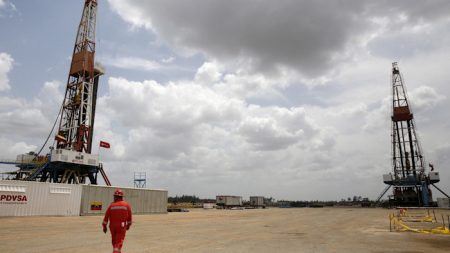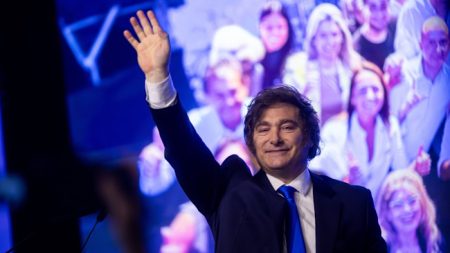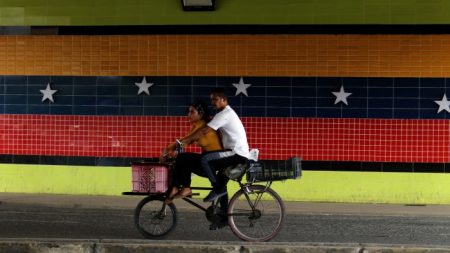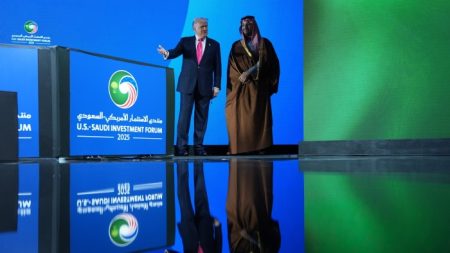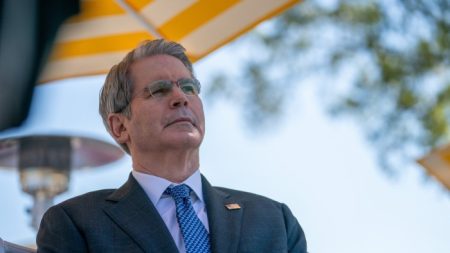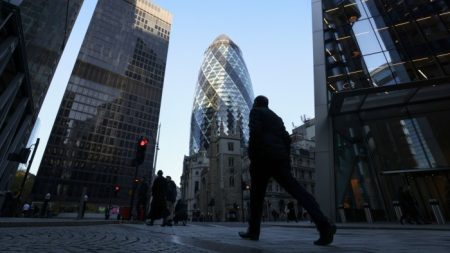Unlock the US Election Countdown newsletter for free
The stories that matter on money and politics in the race for the White House
President Joe Biden is set to debate his Republican rival Donald Trump on June 27 and again in September, in a break from tradition that will see the two presidential candidates face off on television but without a live audience.
CNN said on Wednesday that it would host the June primetime election debate in its Atlanta, Georgia, studios. ABC is expected to host the second debate between the two men on September 10.
CNN’s announcement came hours after the US president’s campaign proposed skipping previously arranged debates this autumn and instead holding two earlier televised debates.
The announcements come less than six months ahead of November’s presidential election, and after weeks of back-and-forth between the candidates over when and whether they would confront each other on stage.
In a letter sent to the Commission on Presidential Debates, Biden campaign chair Jen O’Malley Dillon said the Democratic president would not participate in debates previously arranged by the non-partisan commission for September and October.
The Biden campaign instead proposed two alternative debates, run by news organisations, to be held in late June, after the G7 leaders’ summit and the likely conclusion of Trump’s “hush money” criminal trial in New York, and in September, before early voting begins ahead of election day on November 5.
In a short video posted on social media platform X Biden said: “Now [Trump] is acting like he wants to debate me again. Well make my day, pal. I’ll even do it twice.”
Trump replied that he was open to the arrangement, saying in a post on his Truth Social platform that he was “ready and willing” to debate Biden in June and September — but said he wanted a live audience to be present.
“I would strongly recommend more than two debates and, for excitement purposes, a very large venue, although Biden is supposedly afraid of crowds,” Trump added. “Just tell me when, I’ll be there. ‘Let’s get ready to Rumble!!!’”
Biden later said on X that he had accepted invitations from CNN and ABC for the debates in June and September. Trump also accepted the invitations.
In a memo on Wednesday, Trump’s senior campaign advisers Chris LaCivita and Susie Wiles called for one presidential debate per month, saying “there should be more than just two opportunities for the American people to hear more from the candidates themselves”.
LaCivita and Wiles suggested adding presidential debates in July and August in addition to the June and September match-ups.
“Additional dates will allow voters to have maximum exposure to the records and future visions of each candidate,” they said.
Trump later said on Truth Social that he had accepted another invitation from Fox News for a debate on October 2. It remained unclear whether the the Biden campaign would agree to the additional dates.
Biden’s campaign also proposed a vice-presidential debate to occur in late July, after the Republican National Convention. Trump has not yet selected a running mate for his latest White House bid.
The Biden campaign proposals come after a pressure campaign from Trump and his allies for the president to commit to a live debate between the two White House contenders.
The proposals also mark a break from convention. The Commission on Presidential Debates has sponsored and produced US presidential and vice-presidential debates for more than three decades.
In her letter to the commission on Wednesday, O’Malley Dillon took issue with the organisation’s tactics, arguing that the previously planned debates would not conclude until after early voting was already under way. Early voting has grown in popularity in the US in recent years.
The Biden campaign also accused the commission of “building huge spectacles with large audiences” of “raucous or disruptive partisans and donors”.
Biden’s team instead proposed that the debates in June and September take place in a television studio “with just the candidates and moderators”. The campaign also accused the commission of being “unable or unwilling to enforce the rules in the 2020 debates”.
Read the full article here





